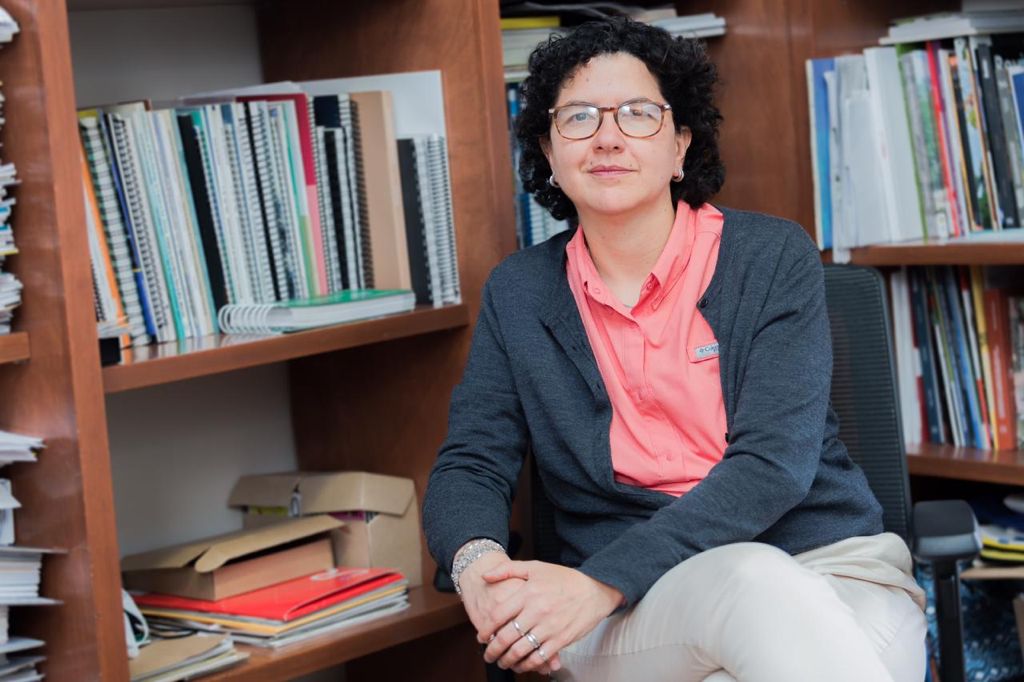Dr Silvia Restrepo was appointed Boyce Thompson Institute’s ninth and first female president in May 2023 and took office in October. She became the first female president in BTI’s 100-year history.
Born in Bogotá and having lived in Paris, France, and Ithaca, New York, before returning to Colombia, Restrepo is known for her innovative work fostering leadership engagement through new policies and practices and developing interdisciplinary and inclusive research programs.
Restrepo holds a PhD from the Université Pierre et Marie Curie, Paris VI, in Paris. Her distinguished research has been recognized with awards such as the Elizabeth Grose Prize, the Third World Academy of Sciences award to young scientists, the Prize from the Institut de Recherche pour le Développement, the Louis Malassis International Scientific Prize for Agriculture and Food, the Merit Ordre from the French Government, and the Jakob Eriksson Prize from The Royal Swedish Academy of Sciences.
Paul Chomet, vice chair of BTI’s Board of Directors and search committee chair, welcomed Restrepo’s appointment and praised her achievements and leadership. “Silvia is an outstanding scientist, leader, and innovator who will bring to BTI extensive strategic planning experience, a background in leading and managing diverse teams, a pioneering scientific career in plant pathology, and a connection to an international network of leaders,” he said.
Restrepo worked at Cornell University for three years as a postdoctoral associate and then as a research associate in William Fry’s and Christine Smart’s laboratories.
“BTI is a world-class institution with a rich history of discovery,” explained Restrepo. “I am deeply honored to assume the role of president, particularly as the first woman to hold this position, and am eager to contribute to BTI’s mission of advancing plant and life sciences and training the next generation of scientists.”
Paula Gaubeca and Mike Carroll spoke to Dr Restrepo about her vision.

What do you envision BTI’s most significant contributions to be 100 years from now when the capsule is opened?
I hope BTI will have significantly contributed to the Sustainable Development Goals. We will be critical players in revolutionizing agriculture, playing an essential role in international agriculture, and partnering with countries in Africa and Central and South America. BTI will be known for actively transferring the technology and know-how to increase crop productivity, enlarge the crop base, and find molecules that can impact human health.
What would you say if you could put a message in the capsule directly to the BTI president 100 years from now?
BTI has the possibility and the duty to think big, to be ambitious, and to believe in its excellence and potential to impact. Never give up on this.
What are you most proud of about BTI as it celebrates its first 100 years? What makes it special?
I am immensely proud of the people, the scientists, and the administrative staff. They all work together as a cohesive community so the researchers can give their best to solve agriculture’s current challenges.
How has technology transformed research practices at BTI since it first opened, and what do you foresee in the next 100 years?
BTI has embraced emerging technology throughout its history. We must continue this path and adopt promising new technologies and research methods. For example, we must embrace Artificial Intelligence (AI) and understand how it can help us accelerate our discoveries.
How do you balance preserving institutional history and tradition while allowing BTI to adapt and innovate for the future?
We must preserve our history and continue to remember the goals of our founder, William Boyce Thompson. His vision was that the study of plants should positively impact human welfare. Today, his legacy is the foundation for our growth and innovation, allowing us to make an ever-increasing impact.
Which countries or regions does BTI currently collaborate with most, and do you foresee major global research partnerships emerging in the near future?
Currently, we collaborate with some African countries. We need to collaborate with more African countries and start collaborations in Central and South America shortly.
What does it mean to you personally and professionally to be the first woman to lead BTI in its 100-year history?
Young women in some countries need role models to see that they can study science and thrive. Being a role model is a heavy responsibility because I want every action to send a message of hope, possibility, and integrity.
